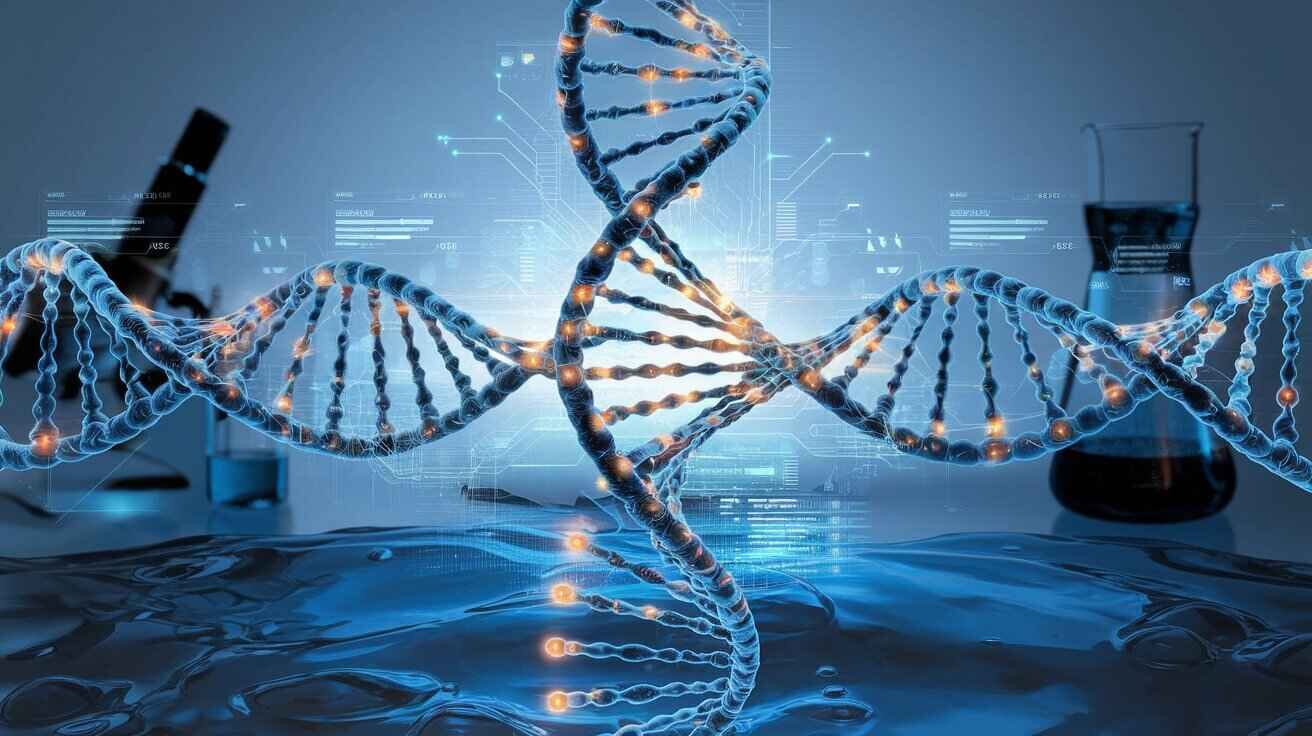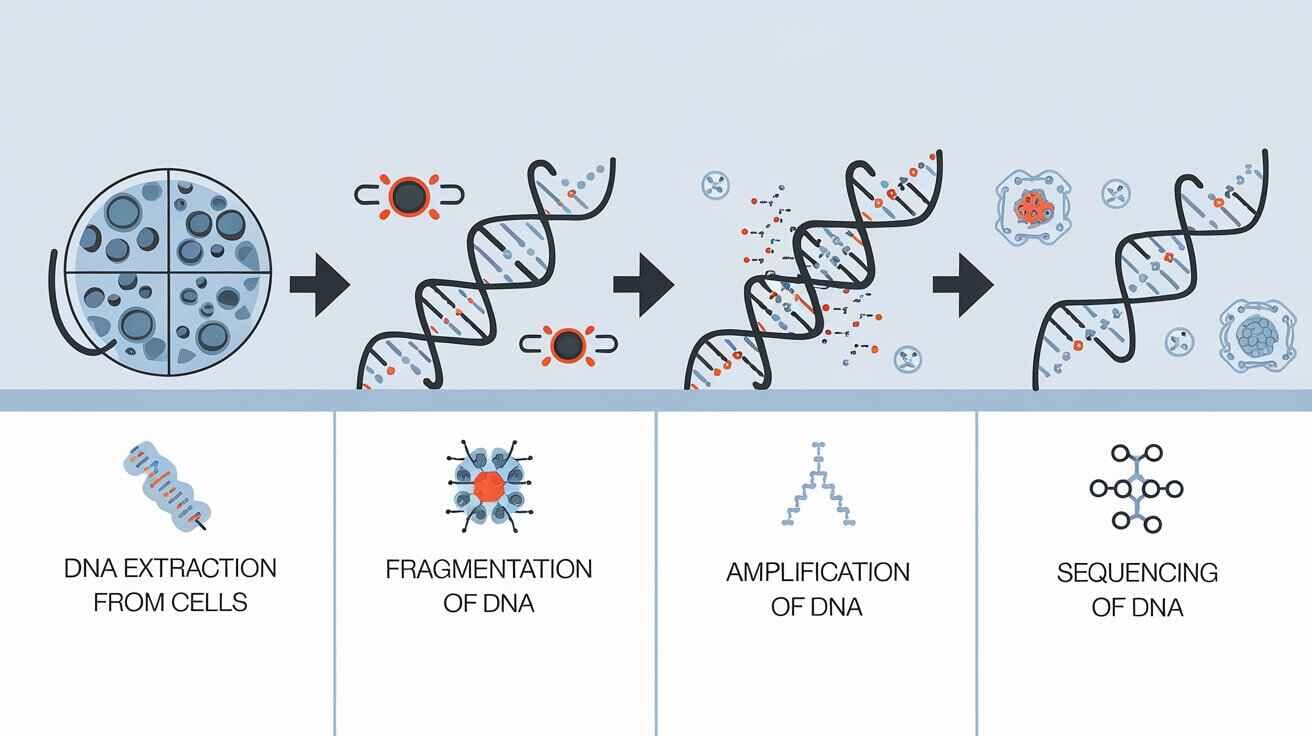
DNA sequencing technology has developed in the last few years. DNA sequencing technology has advanced quickly in the past few decades and brought fresh opportunities in health science. It has made new DNA sequencing technology. Quicker and more economical for all individuals. In this article, we will learn about the definition of DNA sequencing and review its development. We will discuss these positive and negative aspects. As well as their role in healthcare. Our goal is to maintain a friendly language for everyone.
Table of Contents
The Evolution of DNA Sequencing Technology
How New DNA Sequencing Technology Works
What is DNA Sequencing?
The sequence arrangement of A, C, G, and T is established through DNA sequencing use it. These elements of DNA express the significance of a code. Their arrangement stores all the details needed to construct and manage a living system. Grasping the DNA sequence greatly impacts our knowledge. It also affects gene function genetic disorder identification and prescription of specific treatments.
The Evolution of DNA Sequencing Technology
The Sanger technique for sequencing DNA was first used in 1970. Sanger's sequencing did, however, progress the profession. It turned out to be quite costly and slow. It is not appropriate for major undertakings. Human Genome Project disbanded. Became the first to fully reflect human DNA in 2003. The ten-year procedure came at a significant financial cost.
The technique of DNA sequencing is largely a recent development. NGS technology makes it possible to swiftly and affordable sequence millions of DNA fragments. These days, for less than $300, one can sequence the whole human genome in a few hours.
How New DNA Sequencing Technology Works
New DNA sequencing technology, often called next-generation sequencing, involves several steps:
DNA Extraction:
Samples of blood or saliva originate from the process of extracting DNA.
Fragmentation:
DNA fragments are produced for simplified analysis.
Amplification:
Many copies are required to achieve accurate sequencing of the fragments.
Sequencing:
The amplified fragments were sequenced through advanced technology. Each machine analyzes the sequence of each fragment and logs the order of nucleotide bases.
Data Analysis:
Advanced programs join the separate fragments in a full sequence to evaluate genetic data.

Benefits of New DNA Sequencing Technology
The new DNA sequencing technology comes with many advantages that make it highly beneficial:
Speed:
A short time frame is all it takes for this new sequence technology to perform a genome analysis.
Affordability:
Broader access for people and entities has been enabled by the significant reduction in sequencing prices.
Accuracy:
New DNA Sequencing (NGS) analysis provides incredibly accurate results for establishing precise diagnoses and treatments.
Comprehensive Analysis:
It provides greater insight into genetic data and helps in spotting rare mutations and genomic variations.
Applications in Healthcare
The new DNA sequencing technology is revolutionizing healthcare in multiple ways:
Personalized Medicine:
Treatments customized to a patient's genetic traits are delivered by health workers. Medications aimed at cancer can be tailored to fit the specific DNA of the patient.
Disease Diagnosis and Prevention:
DNA sequencing identifies genetic changes that raise the chance of developing specific diseases. When these risks are recognized before they worsen significantly doctors can advise preventive actions.
Prenatal Testing:
During prenatal examinations, DNA sequencing can identify genetic disorders in infants. This allows parents to organize their readiness for potential health problems.
Tracking Infectious Diseases:
During outbreaks, including the COVID-19 pandemic, identifying the virus and observing its mutations through DNA sequencing is important for creating vaccines.
Challenges and Limitations
Despite its advantages, the new DNA sequencing technology faces some challenges and limitations:
Data Management:
We not only obtain enormous amounts of data through sequencing but also must preserve and interpret it. Cutting-edge computational tools and knowledge are required to manage this data.
Ethical Concerns:
People have deep concerns about the privacy of genetic data and the potential for privacy violations and misuse. It is important to regulate access to a person's genetic information to avert misuse.
Complex Interpretation:
Not every piece of information is easy to comprehend despite sequencing and collecting immense data. Although we detect a specific mutation. Its consequences for health might not be known.
The Future of DNA Sequencing
The future of DNA sequencing is a source of great hope. The following are potential areas of impact:
Gene editing:
We can combine DNA sequencing technologies with CRISPR to achieve this. Hereditary diseases may be treatable through the correction of genes with incorrect configurations. It may be possible to develop novel therapies for conditions including muscular dystrophy and cystic fibrosis.
Cancer Treatment:
Sequencing is becoming more and more important for managing cancer. Because it permits prompt detection and customized therapies based on unique mutations in a patient's cancer cells.
Microbiome Research:
A wide range of microorganisms can be found in the human microbiome. It can be explored with the aid of DNA sequencing. It may lead to better treatments for obesity and intestinal issues.
Agricultural Advances:
DNA sequencing can be used beyond healthcare. Enhance resistance to pests and environmental issues in crops. This could advance food security and lessen the use of chemical pesticides.
The latest DNA sequencing technology is transforming healthcare and genetics. This technology is faster and more affordable. It gives us a better understanding of the human genome. This leads to more personalized treatment choices. Personalized healthcare methods and prenatal testing are improving people's lives today.
As DNA sequencing is more common now, we must deal with issues about data handling and morals. Improvements in gene editing and new cancer treatments will give us more health benefits.
Here is the improved version: New DNA technology helps doctors access more genetic data. This allows doctors to give patients better health advice. These advances are making healthcare more customized. This can lead to quicker illness detection and stronger treatments.
